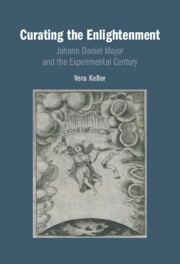Book contents
5 - Anthropology
from Part III - Reworking Disciplines
Published online by Cambridge University Press: 07 December 2024
Summary
In the sixteenth-century Lutheran university, anthropological studies related the human as a microcosm analogically to the world as a macrocosm. The great chain of being dictated hierarchies corresponding to parts of the human body, forms of knowledge, and cosmic structure. Major claimed to found a new anthropology that spurned analogy and related the human to nature through experiment. He set experimental anthropology as the basis for the entire encyclopedia of arts and sciences because human cognitive processes shaped all knowledge. Major first exhibited his anthropology in a public human dissection in 1666. He deployed it against both academic and Rosicrucian views of the microcosm such as those maintained by his nemesis Johann Ludwig Hannemann. He also countered profit-driven arguments about humans. Having already argued in 1665 that the anatomist could correct Biblical interpreters’ views of black skin, he orchestrated in 1675 a public human anatomy of a Black woman, which was the first anatomical study of skin pigmentation. His colleague, Johann Nicolaus Pechlin, performed the dissection, arguing against Hannemann that skin color offered no justification for the slave trade.
Keywords
Information
- Type
- Chapter
- Information
- Curating the EnlightenmentJohann Daniel Major and the Experimental Century, pp. 135 - 170Publisher: Cambridge University PressPrint publication year: 2024
